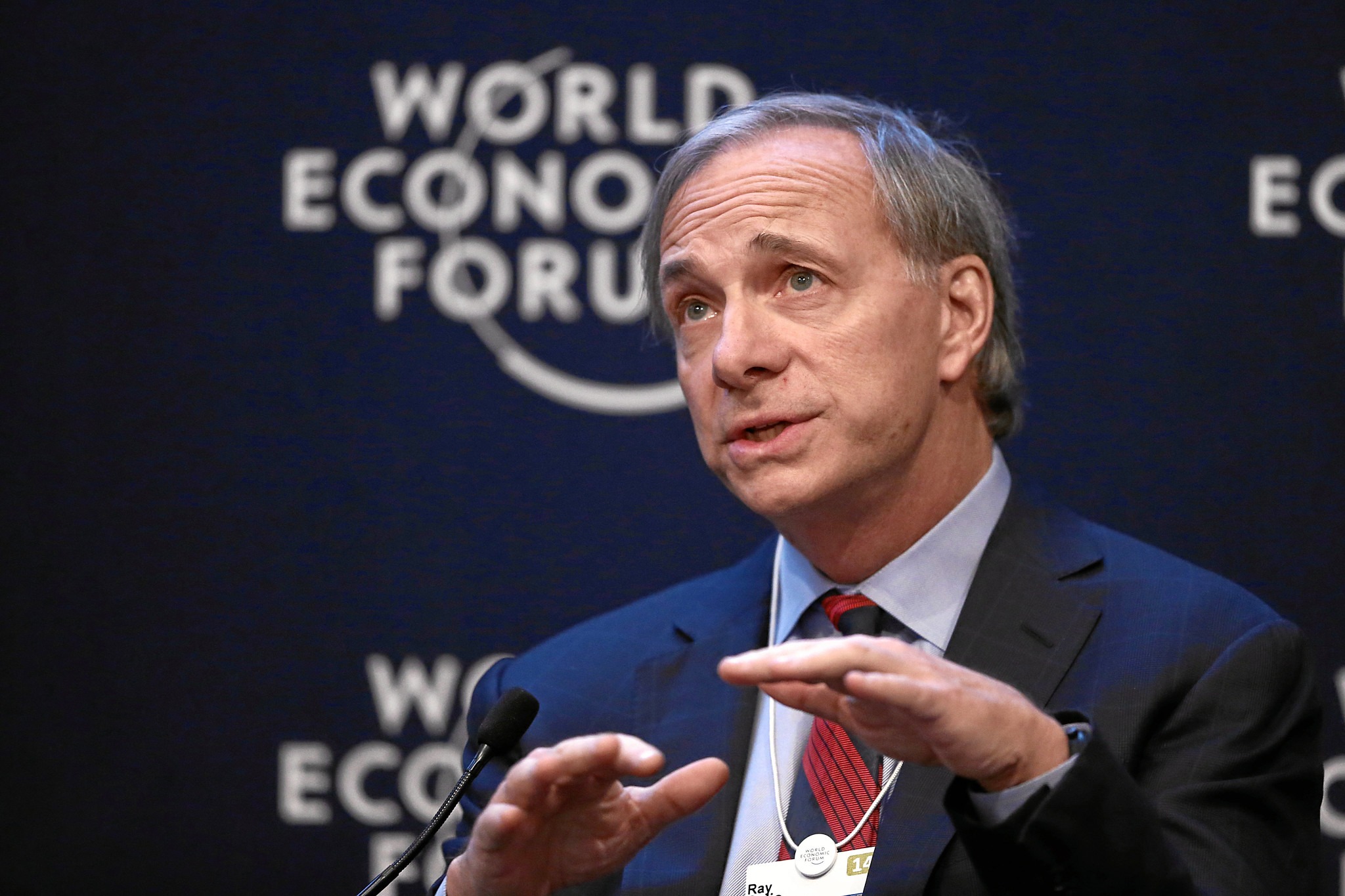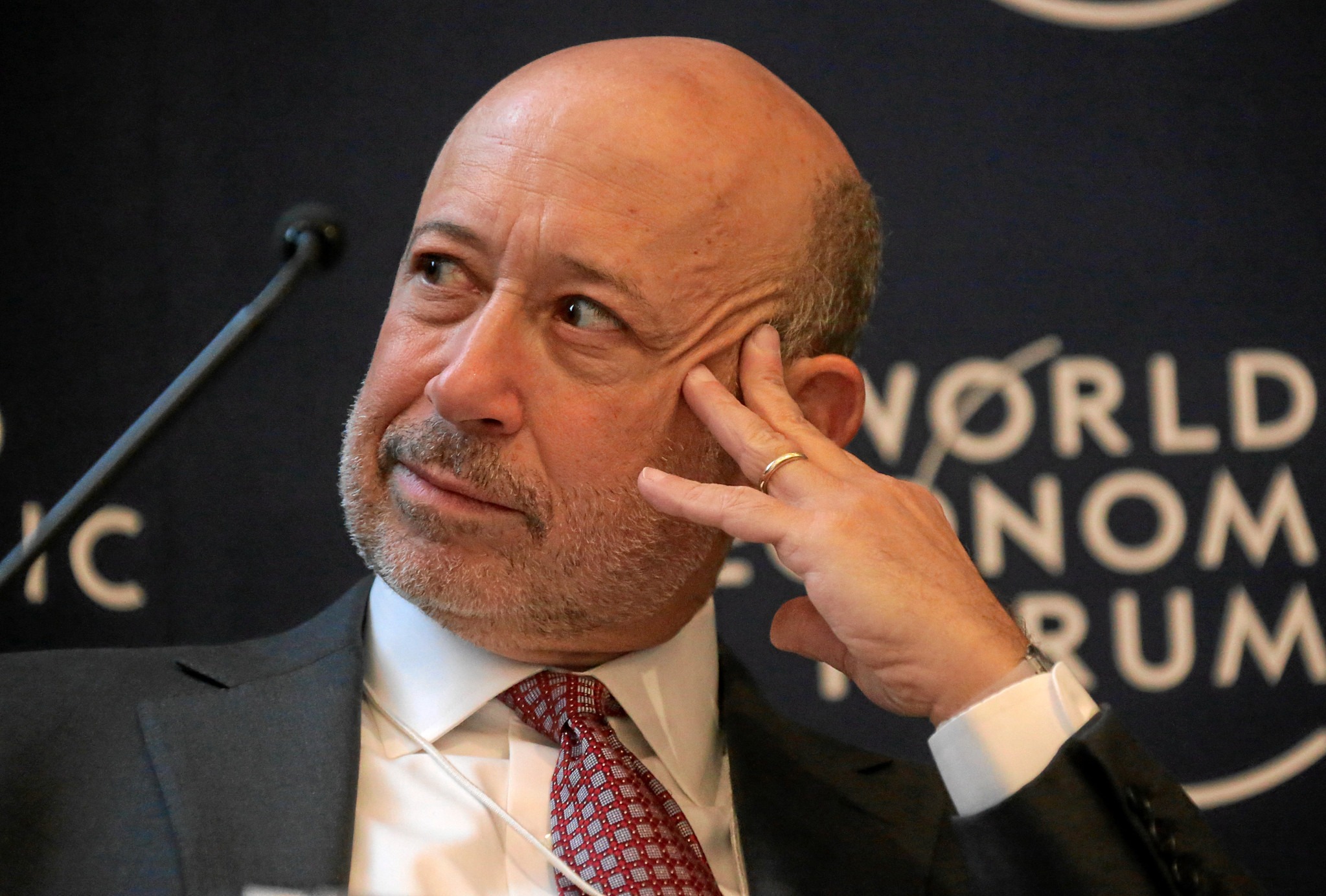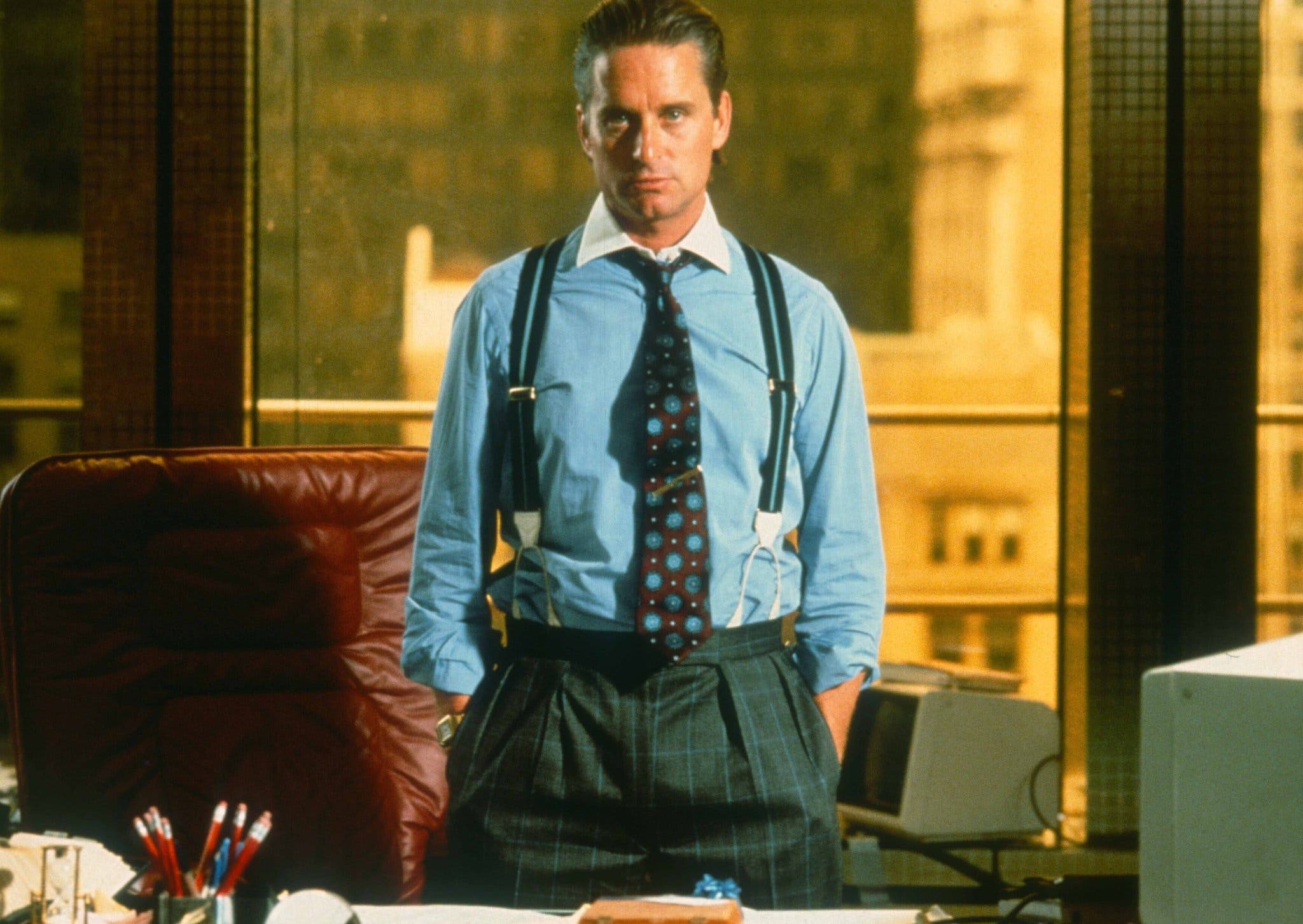What Big Business Won’t Say

By Shaun Tan
Founder, Editor-in-Chief, and Staff Writer
7/12/2021

Ray Dalio, founder, co-chairman, and co-chief investment officer of Bridgewater Associates at the World Economic Forum at Davos in 2014 (Picture Credit: World Economic Forum)
The cringiest thing I’ve seen in a while was Ray Dalio’s attempt to defend investing in an increasingly repressive China. Asked by a CNBC interviewer last week to square his decision to invest heavily in China, given its human rights record, Dalio, the legendary American founder, co-chairman, and co-chief investment officer of Bridgewater Associates, the world’s biggest hedge fund, replied:
“I can’t be an expert in those sorts of things…I invest all over the world. I look to whatever the rules are…but I can’t be an expert in those particular dynamics of that- I really have no idea. So the guidance of the government is the most important thing, these are…political- and then I look at the United States and I say ‘Well, what’s going on in the United States, should I not invest in the United States because [of] our own human rights issues or other things?’ And I’m not trying to make political comparisons. I’m basically just trying to follow the rules, understand what’s going on, and invest properly-”
When the interviewer interjected that, whatever problems America had, it was still very different from China, and, that, at any rate, the US government wasn’t disappearing people for saying things it doesn’t like, like Beijing did with tennis player Peng Shuai and Alibaba founder Jack Ma, Dalio said:
“Look, you want to get into the policy of disappearing people – I’ll give a little bit of a perspective of that, ok? What they have is a autocratic system, and one of the leaders described it, he said that the United States is a country of individuals and individualism, and that’s what it’s about. He said in China it’s an extension of the family, he said if you look at the word ‘country’ in China, it consists of two characters – ‘state,’ ‘family’ – and that has to do with Confucian, and that’s very much a top-down. And as a top-down country, what they’re doing is- it’s that kind of strict parent, they behave like a strict parent, and they go through that. That is their approach. We have our approach…The notion of whatever they’re doing in terms of calling in people and then…behaving in a certain way, that’s their approach. If I…evaluated approaches around the world, in all countries, I’d be in a bind to try to find out where do I invest and so on. It’s just not my domain, and I’ll leave it to the government to make those decisions, and that’s my basic approach.”
"What they have is an autocratic system and one of the leaders described it that the U.S. is a country of individuals and individualism...in China it is an extension of the family," says @RayDalio. "As a top down country what they are doing is--they behave like a strict parent." pic.twitter.com/MNZKMdtPy2
— Squawk Box (@SquawkCNBC) November 30, 2021
(In a subsequent post on LinkedIn, Dalio wrote that his remarks were meant to help people understand how the Chinese government thinks. “Understanding and agreeing are two different things,” he wrote, “and that’s what was lost in the interview.”)
During this exchange, you could see Dalio squirming. In sharp contrast to his demeanor when answering other questions (calm, confident), here he was defensive, flustered, visibly uncomfortable. As well he should be – it was horrifying to see him parrot Chinese Communist Party (CCP) propaganda and its willful distortion of Confucianism, including the notion that Chinese people are perpetual children for whom constant oppression by an autocratic government may be appropriate. It was disgusting to see him engage in feeble moral relativism to avoid making a value judgment, suggesting that, for example, arbitrarily detaining your people for speaking out is just “a different way of doing things,” like driving on the left side of the road instead of on the right. It was also amusing to see Dalio tie himself up in knots rather than state the obvious.
Here’s what Ray Dalio wouldn’t say:
“My corporation is basically amoral. We only care about making money, and it’s not our job to care about anything else. If Nazi Germany was around today, we’d invest in it if we thought it profitable. We are mercenaries who will contract with anyone, no matter how vile, for the right price, so don’t expect us to consider things like ethics. We are a testament to the old communist adage that ‘the capitalists will sell us the rope with which we will hang them.’”
Here’s what Ray Dalio wouldn’t say:
“My corporation is basically amoral. We only care about making money, and it’s not our job to care about anything else.”
Funnily enough, a few years ago Dalio wrote a book called Principles: Life & Work, but the book is about smart principles for success in life and work, rather than moral principles for being a good person, and thus the book is essentially amoral too. But Dalio is not unusually despicable – this could be the motto of a number of businesspeople and corporations that have shown themselves willing to collude with or suck up to repressive regimes to make money, especially China’s. There’s Mark Cuban, owner of the Dallas Mavericks NBA team, co-owner of 2929 Entertainment (a media company), and chairman of the tv channel AXS TV. Asked in an interview with journalist Megyn Kelly why the NBA should take so much money from a country “that’s engaging in ethnic cleansing” of Uyghurs, Cuban replied, angrily: “Because they are a customer. They are a customer of ours, and guess what, Megyn, I’m ok with doing business with China.” There’s Coca-Cola and Nike, whose supply chains have been linked to slave labor in Xinjiang, and who actively lobbied against bills banning the products of such labor. There’s Disney, which has obsequiously pandered to the CCP, and even self-censored, for access to the vast Chinese market. This goes back to 1998, when the company’s then-CEO Michael D. Eisner apologized to Chinese Premier Zhu Rongji for the 1997 Disney movie Kundun (which was about China’s persecution of the Dalai Lama), calling it “a stupid mistake,” to pave the way for the construction of Disneyland Shanghai. More recently, Disney shared the script of the 2020 live action remake of Mulan with Chinese authorities beforehand to avoid any controversy and to guarantee a China release for the movie. Last month, it blocked an episode of The Simpsons that mocked the Chinese government on Disney+ in Hong Kong. Since Hong Kong’s film censorship ordinance doesn’t apply to streaming services and there’s no sign that government regulators objected to the episode, this suggests Disney pre-emptively self-censored to avoid upsetting China.
Then there’s Goldman Sachs, which played a key role in the 1MDB corruption case (the world’s biggest financial scandal), aiding and abetting the kleptocratic government of former Malaysian Prime Minister Najib Razak in robbing the country blind. Although there were numerous red flags, Goldman was so greedy for fees that it turned a blind eye to them, helping the Malaysian state fund sell bonds and using its name to lend an air of respectability to these sordid crimes. There’s Blackstone and Blackrock, and a bunch of other financial giants (including Bridgewater, again), whose leaders, hungry for deals with the oil-rich state, went to Saudi Arabia to kiss Crown Prince Mohammed bin Salman’s ring just a year after he had journalist Jamal Khashoggi murdered and dismembered. And then there’s the International Olympic Committee (IOC), which, despite its name and its pretensions of uniting the world in sporting harmony, is one of the most mercenary of the lot, making billions of dollars off broadcast and licensing deals for each Olympic Games. After forcing Tokyo to hold the Olympics earlier this year when it could have led to a superspreader event (rather than postponing it to a safer date), it’s participated in a farce of a video call with Chinese Olympic tennis player Peng Shuai to help the CCP promote the notion that it’s not persecuting her (when it has no way of knowing if this is true) after she wrote an explosive post alleging an affair with former Chinese Vice Premier Zhang Gaoli, in an attempt to justify proceeding with the 2022 Winter Olympics in Beijing. But perhaps this shouldn’t have been surprising; in 1936 the IOC held the Olympics in Nazi Germany, even after it had invaded and remilitarized the Rhineland earlier that year, and even as it was already heavily persecuting Jews and other minorities.

Lloyd Blankfein, former CEO of Goldman Sachs, at the World Economic Forum at Davos in 2013. Under his watch, Goldman Sachs became embroiled in the 1MDB scandal. (Picture Credit World Economic Forum)
At the same time that they’re fawning over tyrannies abroad, many of these businesspeople and corporations are busy virtue-signaling at home in the West. Mark Cuban is a vocal proponent of the divisive Black Lives Matter movement. In the wake of George Floyd’s killing by a police officer last year, Disney spoke out against “racism.” Goldman Sachs denounced what it called “recent senseless acts of racism and violence against Black people” and, together with Blackrock and much of corporate America, pledged support for “racial equity” and “inclusion.” (Incidentally, there is little to nothing to suggest that racism played any role in Floyd’s killing, or in the other similar police killings of black people.) Nike threw its full support behind former quarterback Colin Kaepernick, even building marketing campaigns around him, after he made the point of kneeling during the national anthem at football games in protest of racism, inequality, and police brutality. Whilst they tiptoe around foreign authoritarian regimes, these corporations are happy to indict the US justice system. They make a big show of “speaking truth to power,” but, of course, that’s easy to do when the only powers you’ve chosen to speak truth to conveniently happen to be liberal democracies that won’t (and in most cases can’t) punish you for doing so.
It’s easy to “speak truth to power” when the only powers you’ve chosen to speak truth to conveniently happen to be ones that won’t punish you for doing so.
There are reasons why so many corporations that are obviously amoral continue to pretend otherwise. “We Seek Only Profit” isn’t exactly an inspiring company motto, and so to attract people it’s useful for corporations to pretend like they have principles, that they stand for something other than boundless expansion and money-grubbing – so long as it doesn’t cost them anything. In his infamous book The Prince, Niccolo Machiavelli advised a ruler to do just that. As he wrote:
[I]t is not necessary for a prince to have all the above-mentioned qualities [faithfulness and honesty] in fact, but it is indeed necessary to appear to have them. Nay, I dare say this, that by having them and always observing them, they are harmful; and by appearing to have them, they are useful, as it is to appear merciful, faithful, humane, honest, and religious, and to be so; but to remain with a spirit built so that, if you need not to be these things, you are able and know how to change to the contrary.
In words that many politicians and CEOs seem to have taken to heart, Machiavelli goes on to advise that:
A prince should thus take great care that nothing escape his mouth that is not full of the above-mentioned five qualities and that, to see him and hear him, he should appear all mercy, all faith, all honesty, all humanity, all religion…Men in general judge more by their eyes than by their hands, because seeing is given to everyone, touching to few. Everyone sees how you appear, few touch what you are; and these few dare not oppose the opinion of many…the vulgar are taken in by the appearance and the outcome of a thing, and in the world there is no one but the vulgar;

At least Gordon Gekko was honest about being an amoral moneygrubber
Ray Dalio has not responded to requests for comment.
Mark Cuban has not responded to requests for comment.
